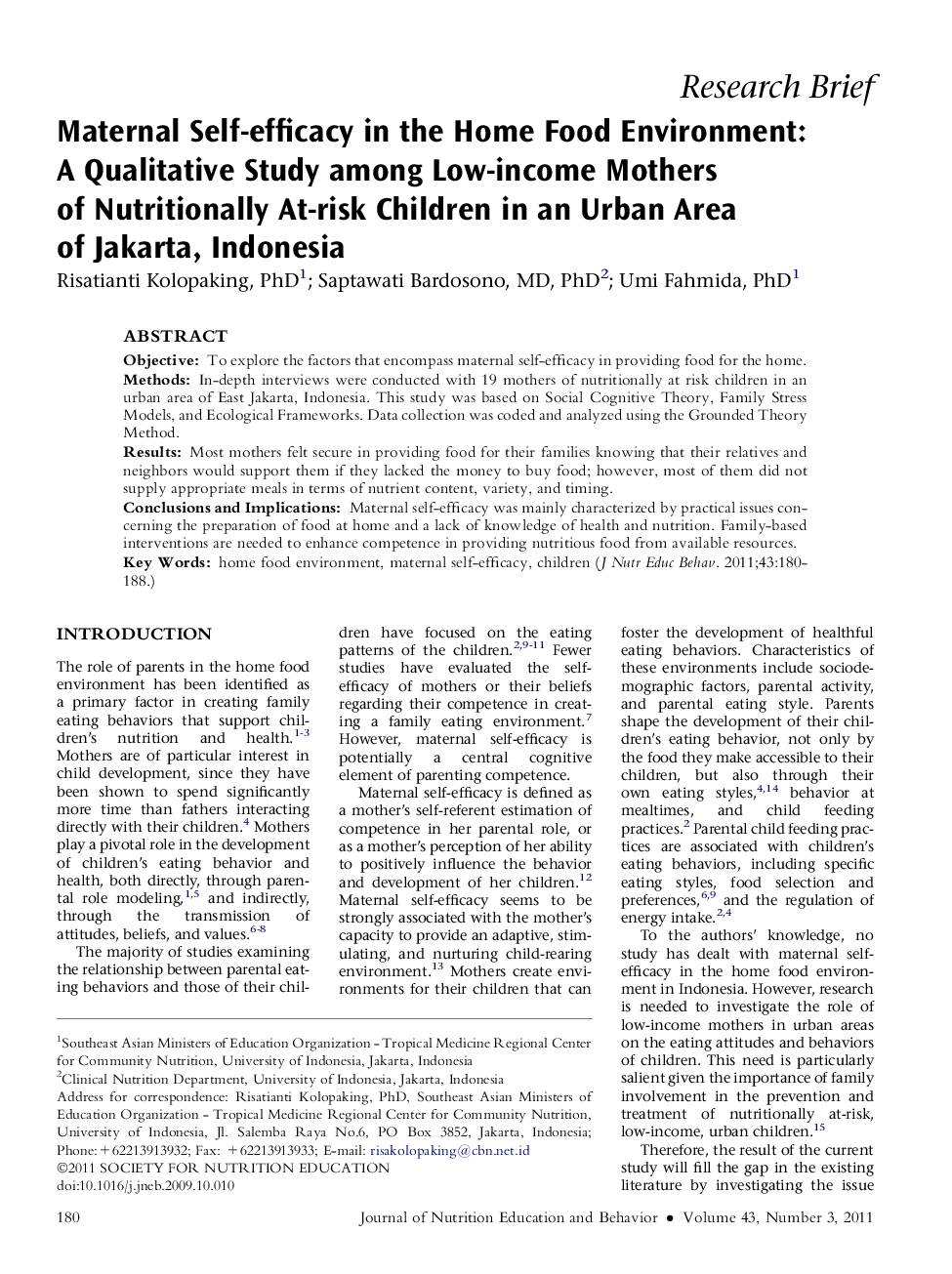| Article ID | Journal | Published Year | Pages | File Type |
|---|---|---|---|---|
| 362756 | Journal of Nutrition Education and Behavior | 2011 | 9 Pages |
ObjectiveTo explore the factors that encompass maternal self-efficacy in providing food for the home.MethodsIn-depth interviews were conducted with 19 mothers of nutritionally at risk children in an urban area of East Jakarta, Indonesia. This study was based on Social Cognitive Theory, Family Stress Models, and Ecological Frameworks. Data collection was coded and analyzed using the Grounded Theory Method.ResultsMost mothers felt secure in providing food for their families knowing that their relatives and neighbors would support them if they lacked the money to buy food; however, most of them did not supply appropriate meals in terms of nutrient content, variety, and timing.Conclusions and ImplicationsMaternal self-efficacy was mainly characterized by practical issues concerning the preparation of food at home and a lack of knowledge of health and nutrition. Family-based interventions are needed to enhance competence in providing nutritious food from available resources.
